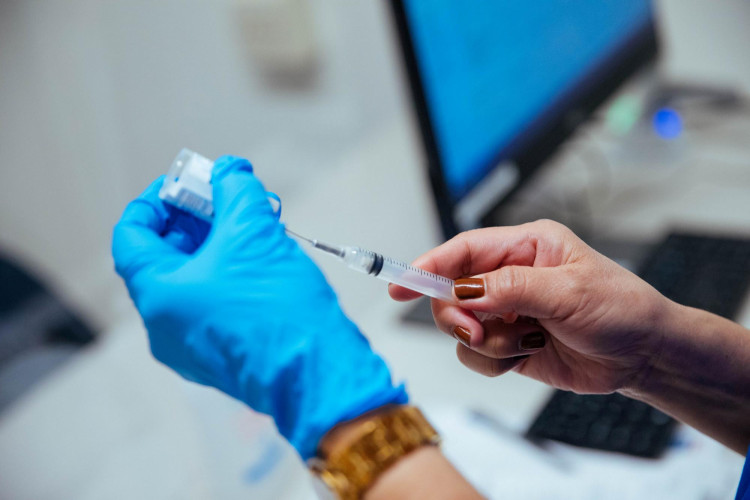Biotech Moderna said it has started delivering doses of its COVID-19 vaccine to children from six months to 11 years old as part of second-phase clinical trials, Axios reported on Wednesday.
The trial announced Tuesday will enroll around 6,750 children in the U.S. and Canada.
The first group of children was given the experimental treatment in a study spearheaded by Moderna in tandem with the National Institute of Allergy and Infectious Diseases and the Biomedical Advanced Research and Development Authority, The Wall Street Journal reported.
Trial participants between the ages of 2 and 11 will be administered with either 50 or 100 micrograms per dose, while ages 6 months to under 24 months will be given 25, 50 or 100 mcg per dose. The participants will receive two doses, 28 days apart.
Once researchers determine which dosage level is most safe and effective, they'll proceed to the next phase of the clinical trial, which will introduce a "placebo." In this phase, the children will get a saline shot, which will do nothing, while those in the other group will be given the actual vaccine.
The children will be monitored for a year to see whether the vaccine works better than the dummy shots.
Although children account for around 21% of the U.S. population, they make up for just 11% of COVID-19 cases, based on data by the Centers for Disease Control and Prevention.
"This pediatric study will help us assess the potential safety and immunogenicity of our COVID-19 vaccine candidate in this important younger age population," Axios quoted Moderna chief executive officer Stephane Bancel as saying in a statement.
Moderna and Pfizer both carried out clinical trials in December 2020 to test their COVID-19 vaccines on children aged 12 to 17 years old.
The clinical trial will run for a few months and then the data will be submitted to the U.S. Food and Drug Administration for final approval for emergency use in all children in the age group.





